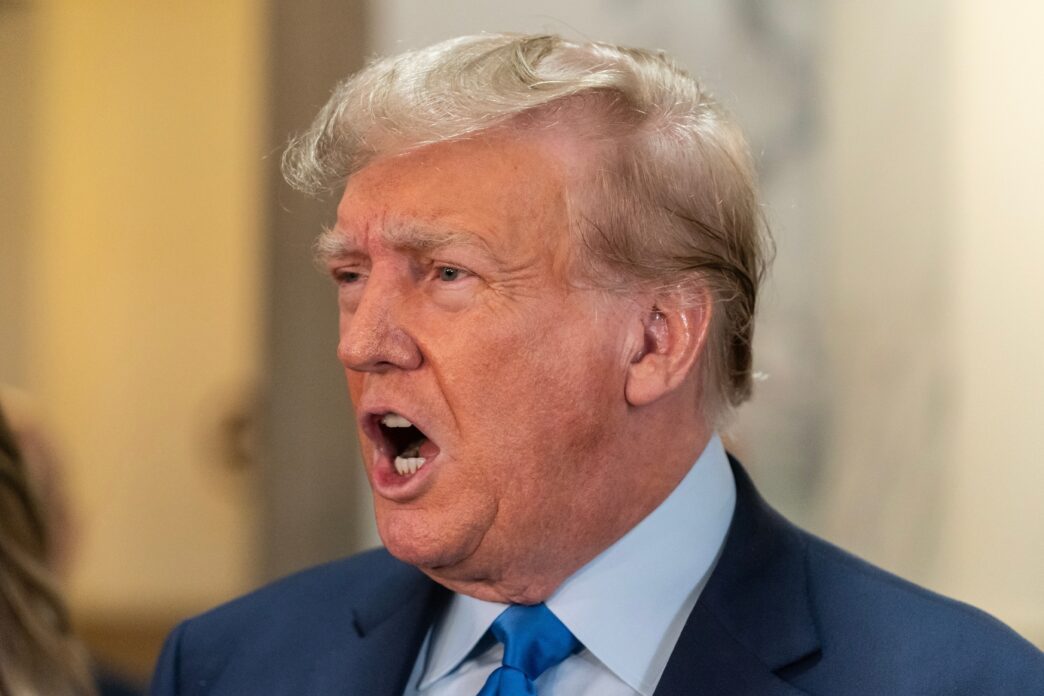Executive Summary
The Story So Far
Why This Matters
Who Thinks What?
Donald Trump has threatened to sue the BBC for $1 billion, alleging that a documentary aired in October 2024 contained “false, defamatory, malicious, disparaging, and inflammatory” edits of a speech he delivered before the January 6, 2021, storming of the U.S. Capitol. The threat comes amid a major crisis for the British public broadcaster, which saw its chair, Samir Shah, apologize for an “error of judgment” regarding the editing, and the resignations of its director general, Tim Davie, and the chief executive of BBC News, Deborah Turness.
The Documentary and Alleged Edits
The BBC documentary, titled “Trump: A Second Chance?”, aired in October 2024, just days before the U.S. presidential election. While initially receiving positive reviews in the UK, it garnered little attention in the U.S. The controversy centers on a specific segment that spliced together comments made by Trump nearly an hour apart during his January 6 speech.
The documentary showed Trump stating, “We’re gonna walk down to the Capitol and I’ll be there with you and we fight. We fight like hell and if you don’t fight like hell, you’re not going to have a country anymore.” However, Trump actually said, “We’re gonna walk down to the Capitol and we’re going to cheer on our brave senators and congressmen and women,” and then 54 minutes later, told supporters to “fight like hell.”
BBC Chair Samir Shah conceded in a letter to a parliamentary committee on Monday that the edit “did give the impression of a direct call for violent action.”
Origin of the Scandal
The editing discrepancy came to light through a leaked memo from Michael Prescott, a former external adviser to the BBC’s editorial standards committee. Prescott’s memo, published by The Telegraph, detailed several alleged shortcomings in the BBC’s news output, including the “completely misleading” edit of Trump’s speech.
Former BBC journalists have criticized the broadcaster for its delayed response, noting that concerns about the documentary had been raised internally months before the memo’s public release. The BBC board ultimately decided to issue an apology through Shah’s letter to a parliamentary committee, shortly before Trump’s legal threat was reported.
Leadership Resignations
The escalating controversy led to significant leadership changes within the BBC. Tim Davie, the BBC’s director general, and Deborah Turness, the chief executive of BBC News, both resigned on Sunday. Davie cited “some mistakes” for which he took “ultimate responsibility,” while Turness stated the controversy had “reached a stage where it is causing damage to the BBC.”
Turness, however, denied claims of institutional bias within BBC News, emphasizing her belief that such allegations were “wrong.”
The BBC’s Structure and Impartiality Debate
The BBC is a publicly funded but editorially independent broadcaster, established by a “royal charter” in 1927. It is primarily funded by a compulsory “license fee” paid by UK households, with a mission to provide “impartial, high-quality and distinctive output.”
Despite its mandate for impartiality, the BBC has faced allegations of bias from across the political spectrum. Critics, particularly from the right, often challenge its publicly funded status and the compulsory license fee. Nigel Farage, leader of Reform UK, stated, “The BBC has been institutionally biased for decades,” and advocated for a “very much slimmed down BBC.”
Trump’s Demands and Financial Implications
In a letter to the BBC, Trump’s lawyer accused the broadcaster of “intentionally and deceitfully” editing the “Panorama” film to interfere in the presidential election, causing “overwhelming financial and reputational harm.” Trump demands a retraction of the documentary, an apology, and “appropriate compensation.”
The letter states that if these demands are not met by Friday at 5 p.m. ET, President Trump will pursue legal action for “no less than $1,000,000,000 (One Billion Dollars) in damages.” The BBC reported £5.9 billion ($7.8 billion) in revenue last financial year, with cash reserves of £477 million ($627 million), making a $1 billion payout financially challenging.
Jurisdiction and Precedent
Trump intends to bring the case in Florida, where the statute of limitations for defamation claims is 24 months, compared to 12 months in the UK and many other U.S. states. However, UK media lawyer Mark Stephens noted that Trump would need to demonstrate that his reputation was damaged among Florida residents who watched the documentary.
Trump has a history of threatening and pursuing legal action against media outlets. Last year, ABC reportedly paid $15 million to settle a defamation suit with Trump, and Paramount, the parent company of CBS News, agreed to pay $16 million to resolve a lawsuit over an edited “60 Minutes” interview. Legal analysts suggest the BBC may be less inclined to settle, as Trump may lack the same leverage he held over U.S. commercial entities.
Key Takeaways
The dispute between Donald Trump and the BBC highlights ongoing tensions between political figures and media organizations, particularly concerning editorial judgment and perceived bias. The potential $1 billion lawsuit could have profound financial and reputational consequences for the BBC, further complicating its future as its royal charter approaches renewal in 2027.








